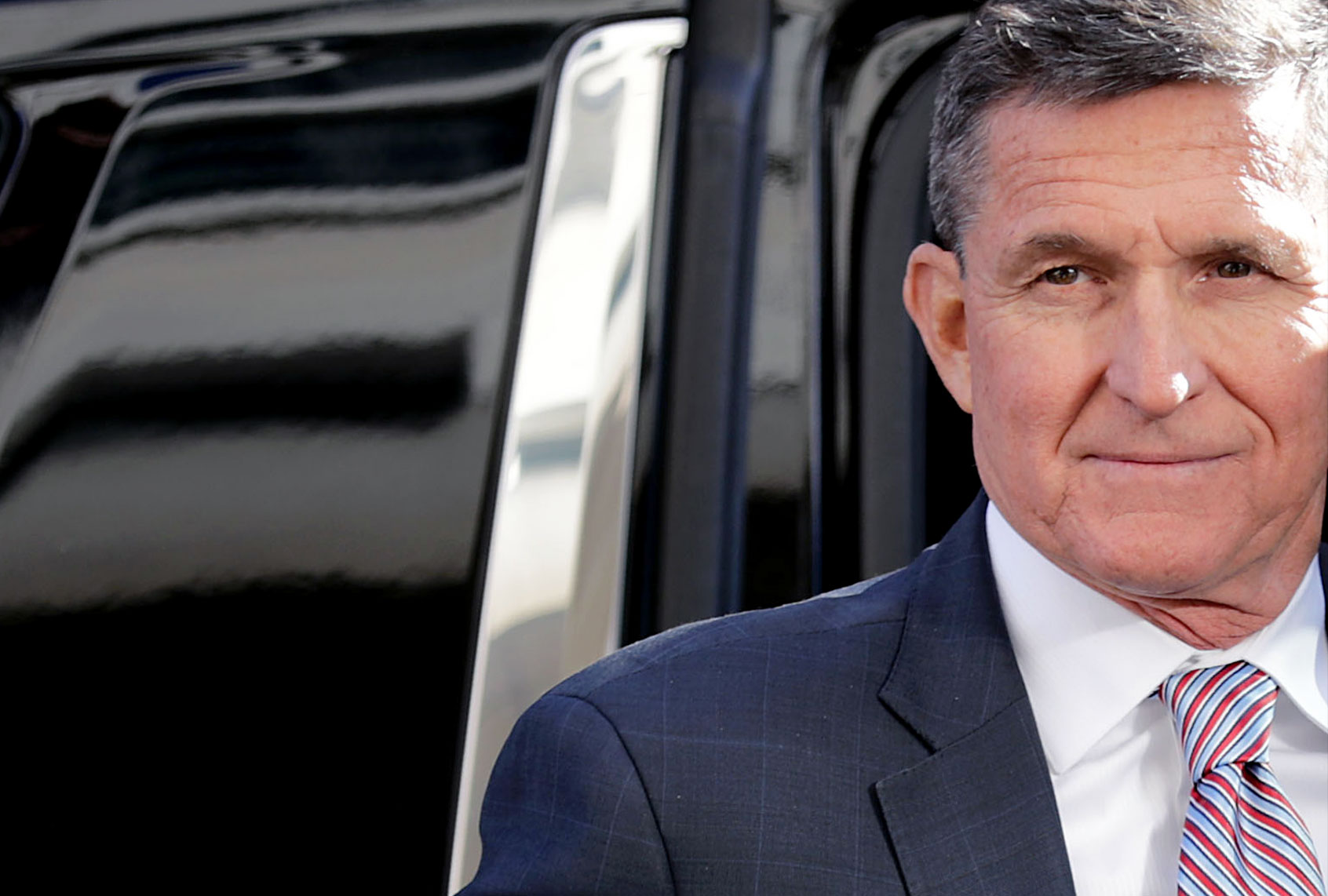The Department of Justice released President Donald Trump’s sweeping pardon of Michael Flynn, showing that he had absolved his former national security adviser of “any and all possible” crimes related to former special counsel Robert Mueller’s Russia probe.
The Justice Department included Flynn’s formal pardon in a court filing asking for his criminal case to be dismissed. Though Flynn pleaded guilty in 2017 to lying to the FBI about his contacts with a Russian official during the 2016 presidential transition, he later tried to withdraw his plea. The Justice Department, at the behest of Attorney General William Barr, also unsuccessfully intervened in attempt to get Flynn’s case dismissed.
Trump’s pardon gives Flynn immunity for “any and all possible offenses” connected to the Mueller investigation and any related grand jury proceedings. The extraordinarily broad pardon absolves the former Trump adviser of any charges based on “facts and circumstances, known to, identified by or in any manner related to the investigation of the special counsel.”
Here it is — @GenFlynn’s full and unconditional pardon, fresh on the docket. H/t @ByronTau pic.twitter.com/Z0fvIPZ57l
— Sadie Gurman (@sgurman) November 30, 2020
Legal experts believe Flynn’s pardon may be the broadest since former President Gerald Ford preemptively pardoned former President Richard Nixon in 1974.
“Pardons are typically directed at specific convictions or at a minimum at specific charges,” Margy Love, the head of the Collateral Consequences Resource Center and a former pardon attorney for Presidents George H. W. Bush and Bill Clinton, told Politico. “I can think of only one other pardon as broad as this one, extending as it does to conduct that has not yet been charged, and that is the one that President Ford granted to Richard Nixon.”
But the pardon granted to Flynn might have been “even broader,” Love argued.
“In fact, you might say that this pardon is even broader than the Nixon pardon, which was strictly cabined by his time as president,” she said. “In contrast, the pardon granted to Flynn appears to extend to conduct that took place prior to Trump’s election to the presidency, and to bear no relationship to his service to the president, before or after the election.”
While Bush granted broad pardons in the Iran-Contra affair, those were “limited to conduct that took place in the service of the presidency,” Love added.
The language in Flynn’s pardon means that he will avoid any other potential federal charges from his legal battle. Though Flynn pleaded guilty only to lying to the FBI, some legal experts have argued that he could also be prosecuted for contradicting his statements to the court after he attempted to reverse his plea.
District Judge Emmett Sullivan has been weighing whether to dismiss the case for months. The Justice Department, asking Sullivan to dismiss the case on Monday, said Trump’s pardon also included “any possible future perjury or contempt charge in connection with General Flynn’s sworn statements and any other possible future charge that this court or the court-appointed amicus has suggested might somehow keep this criminal case alive over the government’s objection.”
“Accordingly, the president’s pardon, which General Flynn has accepted, moots this case,” the filing said.
Flynn lied to the FBI about his contacts with then-Russian Ambassador Sergey Kislyak. Flynn contacted Kislyak to urge the Kremlin not to retaliate against sanctions from the Obama administration. He also faced an investigation for his work in Turkey, which allegedly included a plot to kidnap a Turkish dissident in Pennsylvania and deliver him to the country.
After pleading guilty to lying to the FBI about his calls to Kislyak, Flynn’s new lawyer Sidney Powell led an effort to reverse his plea. She argued that the FBI had acted improperly by questioning him.
Powell is now waging a dubious legal effort parallel to Trump’s legal team, alleging a baseless and bizarre conspiracy theory that voting machines switched votes from Trump to President-elect Joe Biden in a plot linked to Venezuela, Cuba, China, the CIA and the Republican governor of Georgia.
Andrew Weissmann, one of Mueller’s former top lieutenants, slammed the Trump administration’s intervention into the case.
“Trump issued the pardon only after Barr debased the Department of Justice by filing a disingenuous motion to dismiss,” he told The New York Times. “Sullivan will have the opportunity to weigh in on his view of all this when he grants the motion to dismiss based on the full pardon.”

